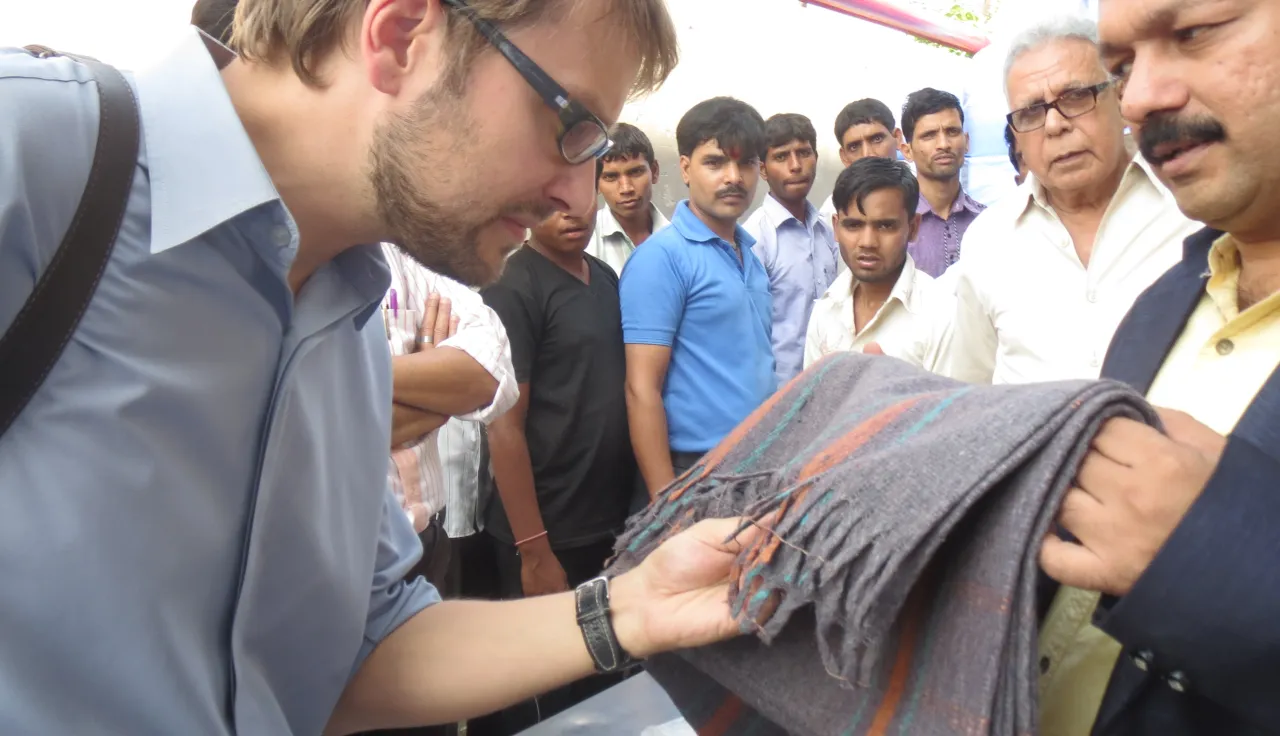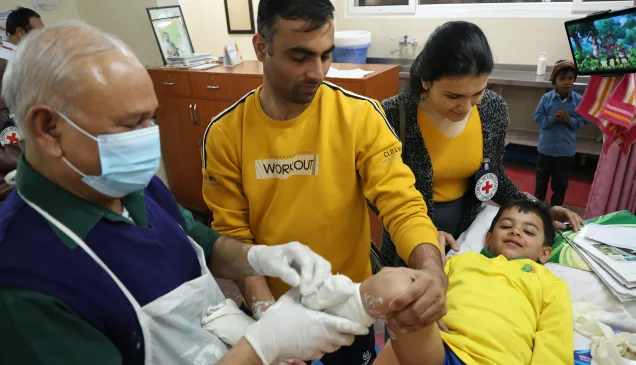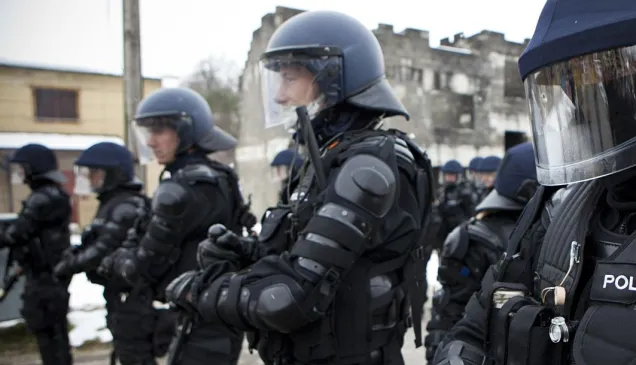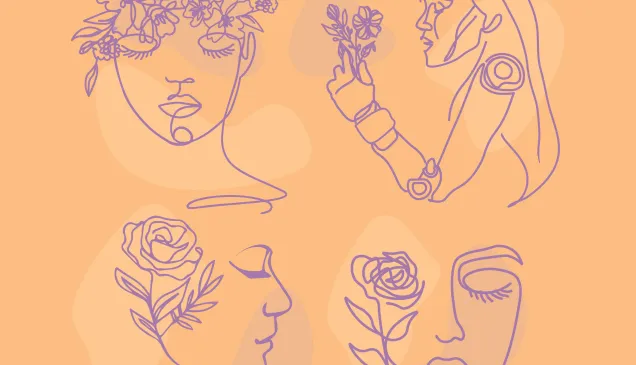Kitchen sets to engineering machines: Humanitarian connection of India’s producers

As part of its mandate, the ICRC responds quickly and efficiently to help people affected by armed conflict. With a presence in more than 80 countries across the globe, emergency relief items are shipped to humanitarian operations worldwide as and when there is a need. Along with the local Red Cross society, ICRC brings assistance to victims by providing medical care, setting up hospitals and rehabilitation centers. It also assists civilians by providing appropriate material aid needed, such as food, water and sanitation, shelter and clothing etc. ICRC sources these relief materials from different markets across the world. India is one of the countries from where a majority of the purchases are made.
So the next time you see ICRC providing relief aids in countries like South Sudan, Syria, and Somalia to populations affected by conflict, there is a good chance that some of those goods might have travelled all the way from India. Rodney Gallwey, Asia Sourcing Manager for the ICRC Regional Delegation in New Delhi gives us some insights into the importance of the Indian market to ICRC's operations of providing humanitarian assistance globally.
Why is Indian market important for ICRC?
The Indian market provides us almost all that we need. India is well placed in terms of geographical location and can supply conveniently to the Middle East and Africa. And a good connectivity means we can get emergency goods to crisis zones very quickly from India. Every year the purchase from the Indian market is increasing by 10-15% and in the future too, India will play a major role in procurement activities for ICRC.
What are basic guidelines that ICRC follows while identifying a supplier?
The ICRC's main objective, like in any other country, is to first identify socially compliant enterprises/manufacturers who strictly adhere to the ICRC's ethical standards principles and comply with the Indian factory act regarding child labour or forced labour, minimum wages, good working conditions for employees, security and hygiene of premises, environmental concerns, etc. The ICRC does not work with companies that are involved in the manufacturing of arms and ammunitions.
What kind of goods are procured from India?
Here we purchase mainly non-food items which include kitchen sets, plastic mats, blankets, towels, and also engineering machines such as ice crusher machines etc. We also buy food-items which includes enriched foods with vitamins and some medical items such as bandages, surgical gloves etc.
How long has the ICRC been purchasing from the Indian market?
We have been buying products for a long time but it is since 2009 that there has been a 40-50% increase in purchasing of relief and aid material from the Indian markets. Though our suppliers are spread throughout the country, but many of them are in the states of Haryana, Punjab, Gujarat, Maharashtra and Tamil Nadu.
To which countries do these goods go?
Our current statistics show that it goes to Afghanistan, Bangladesh, Central Africa, Israel, Korea, Lebanon, Mali, Philippines, Somalia, South Sudan, Syria, Chad, Uganda, Yemen among many others.
What does the future hold for Indian markets especially in terms of trends for it to emerge as a leader?
India is a very interesting market in terms of pricing. Nevertheless at times we need to intervene and support the Small and Medium Enterprises in order to reach a minimum level of social and quality compliance. But having said that, the trends in procurement and supply chain look very promising. I was one of the jury members at the recently organised 2nd Annual Chief Procurement Officer (CPO) Forum India & Awards 2014 in Mumbai and I can foresee that in next ten years procurement will be linked to e-sourcing platforms, e-auctions and companies will increasingly develop electronic tools for their ordering and stock management mechanism.
Log on to the ICRC New Delhi blog to read our three-post series-Raising the Bar which focuses on how the ILO and the ICRC are promoting responsible enterprises through the Sustaining Competitive and Responsible Enterprises (SCORE) Training project.
Relief goods worth INR 2.5 Crores were purchased from Indian markets for providing assistance to those affected by floods in Jammu and Kashmir. The distribution of relief goods comprising of blankets, solar lamps, chlorine sachets, bleaching powder, hospital beds, life jackets,inflatable boat, hospital matterses and pillows were carried out in close coordination with the IRCS.
Extrat from ICRC New Delhi newsletter



